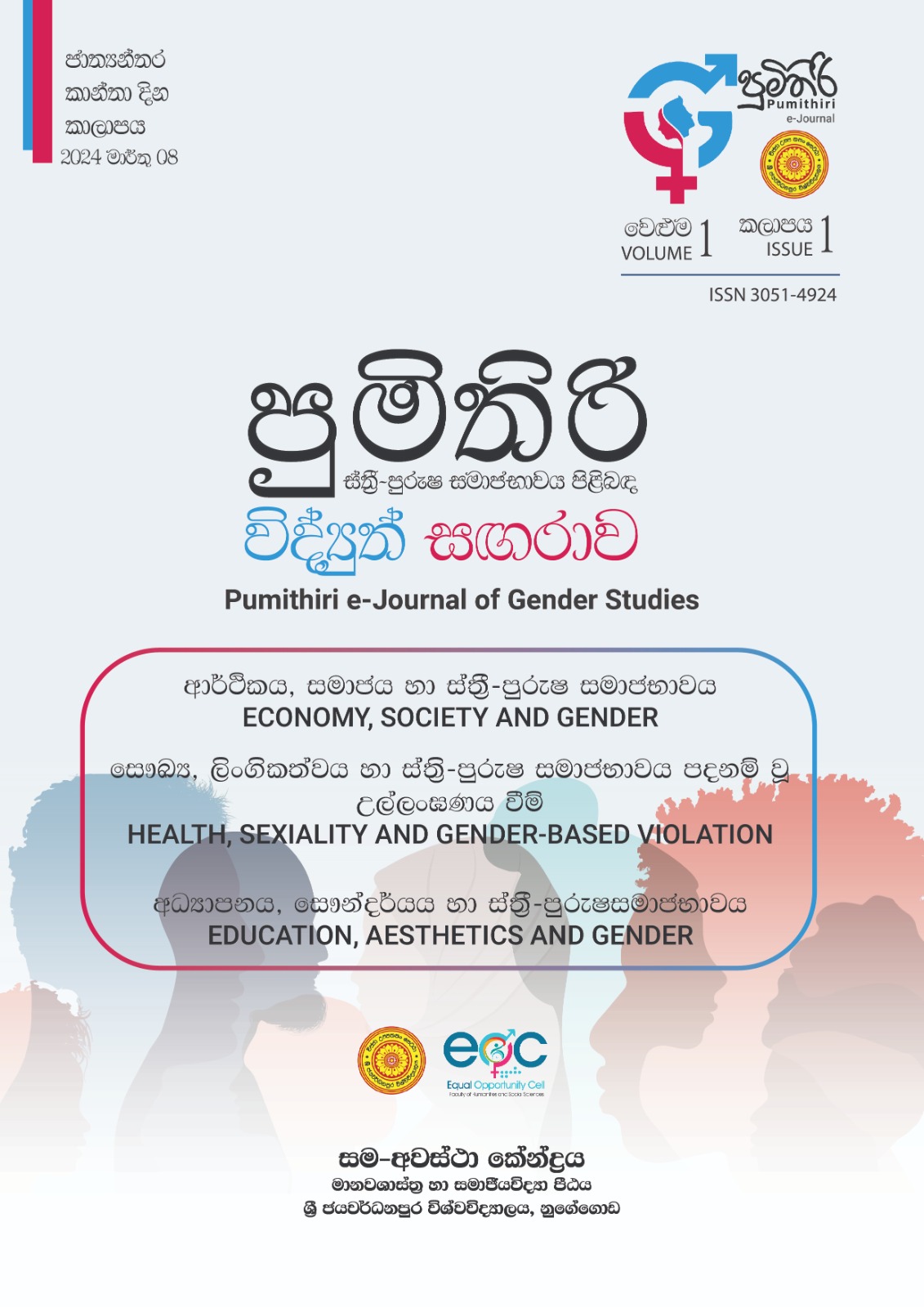RURAL POVERTY AMONG AGRARIAN COMMUNITY IN SRI LANKA: A GENDER PERSPECTIVE (SPECIAL REFERENCE TO NUWARA-ELIYA DISTRICT IN SRI LANKA)
DOI:
https://doi.org/10.31357/pumithiri.v1i01.7799Keywords:
Agrarian Community, Culture, Gender, Poverty, Rural PovertyAbstract
Rural poverty is a persistent issue affecting the agrarian community in Sri Lanka, a country with a significant agricultural sector. Despite economic development, rural poverty remains a significant concern, requiring a gender perspective to understand its manifestation. The research problem in Sri Lanka focuses on the poverty and economic deterioration of the plantation agricultural community, highlighting the lack of positive gender perspective influence on their situation. The main objective of this research is to comprehensively investigate and understand the complex interplay between rural poverty and gender in Sri Lankan agrarian community. The study is used by the local farmers to collect Primary data for the research. The data collected from the agrarian community in this study focused on the up-country crops and tea cultivation district is Nuwara-Eliya in Central province, Sri Lanka. It selected thirty households from the Nuwara-Eliya divisional secretariat as primary respondents. The research sample selected under judgment sampling method of the non-probability sampling method and the structured interview schedule used for primary data collection. All respondents, varying in age and residency, were farmers facing income inadequacies, leading to reliance on loans. Gender disparities in land ownership and credit access were observed, with women resorting to Samurdhi Bank and Sanasa Bank loans. Despite active female participation in agriculture, traditional gender roles persisted. Challenges included women's unfamiliarity with agricultural machinery, suggesting a need for awareness programs. Education, especially for women, emerged as a pivotal factor in breaking the poverty cycle. The study highlighted parental efforts to educate children, opposing their involvement in agriculture. Respondents suggested government interventions like reducing fertilizer prices and living costs to uplift the agrarian community's economy. Anthropological research in Sri Lanka reveals complex dynamics affecting rural poverty among agricultural communities, particularly women, despite limited access to education, resources, and entrenched gender roles. The agricultural formula in Sri Lanka aims to empower women, boost productivity, and address structural inequalities through educational programs, credit reduction, and cultural norm challenge.



